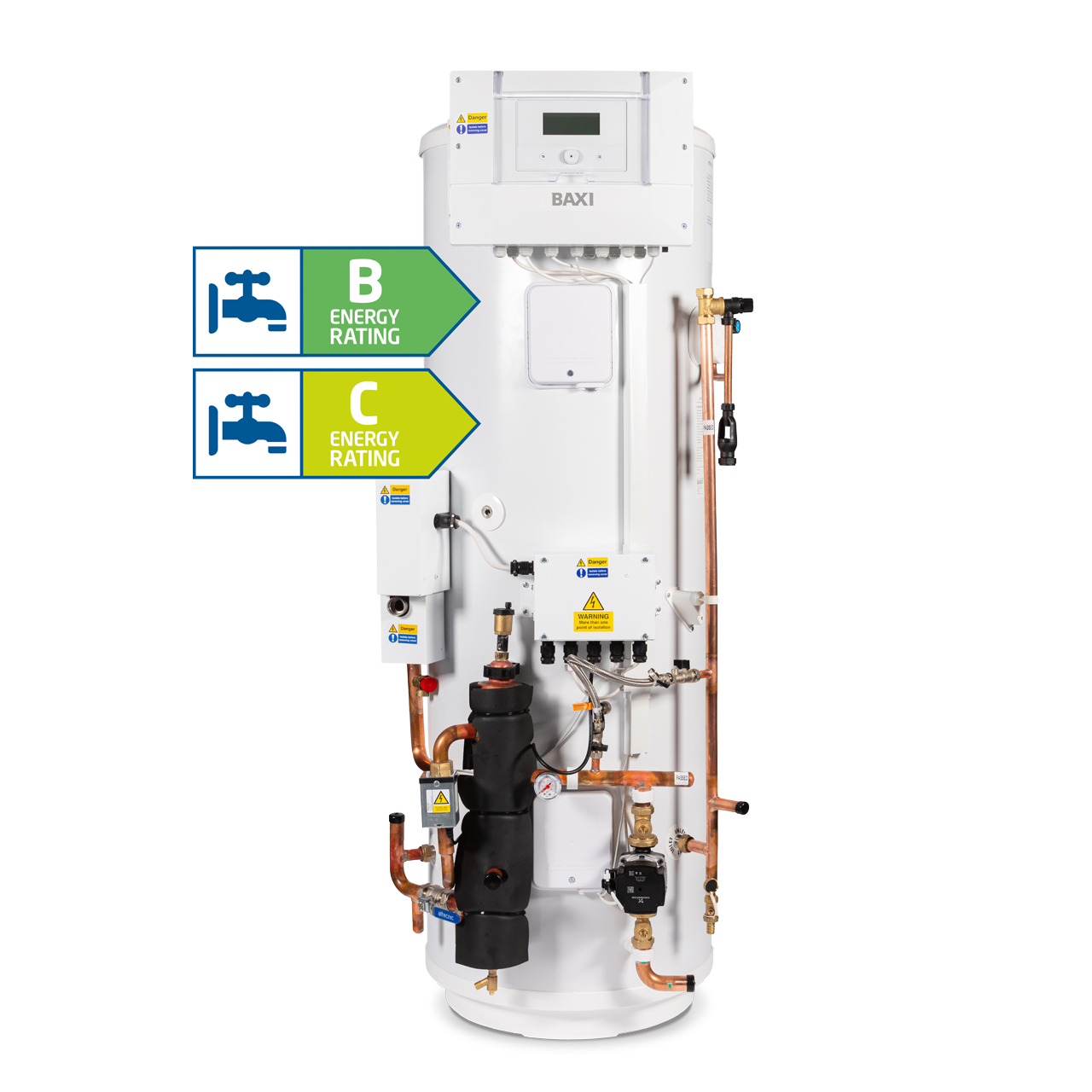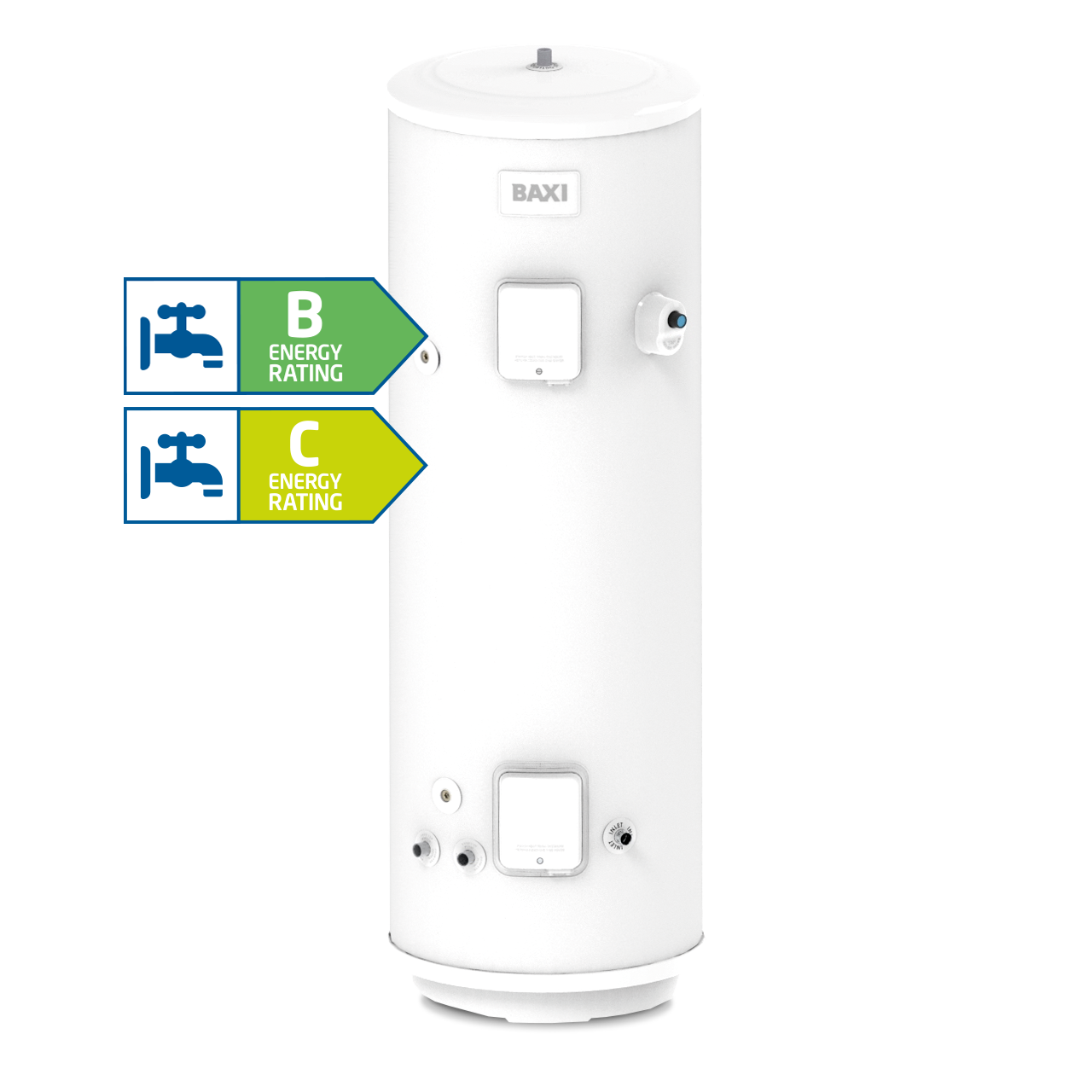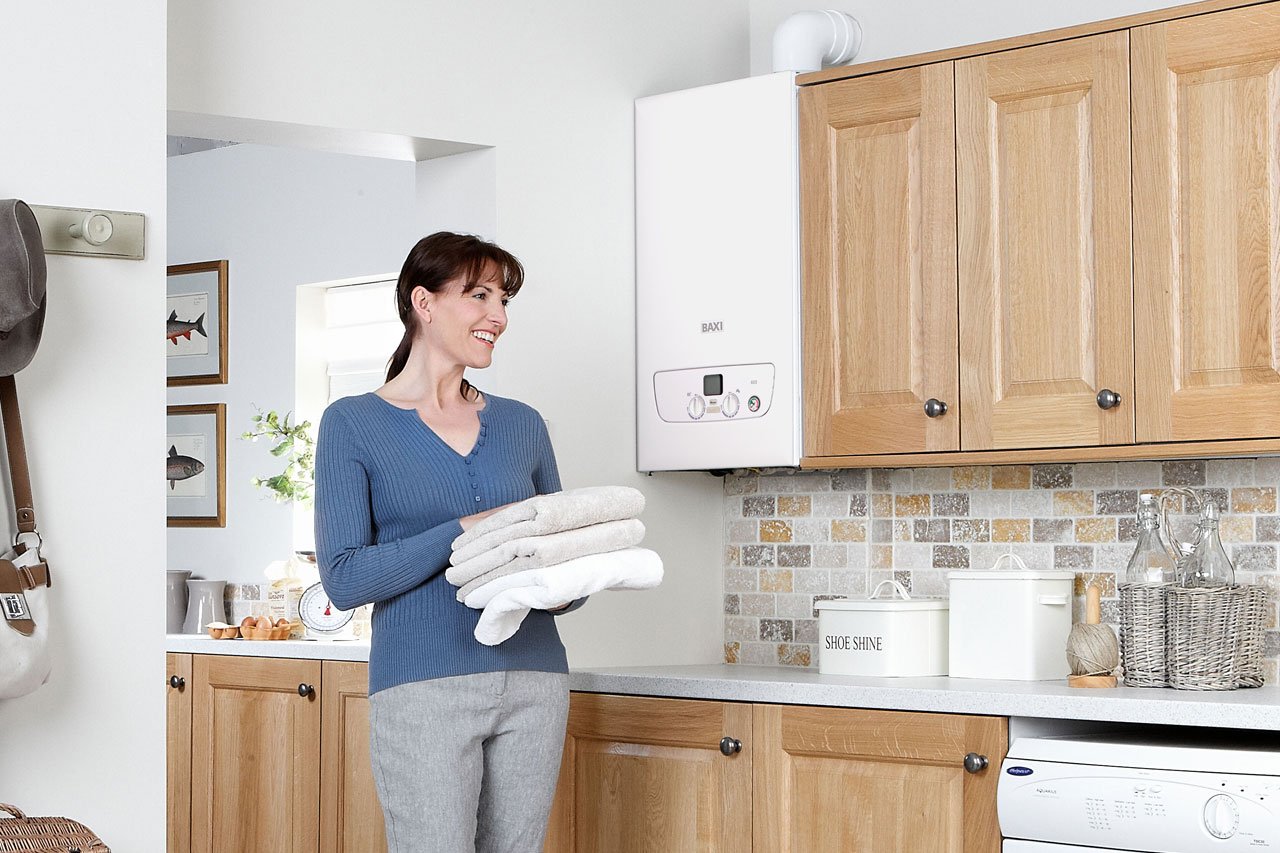Cylinder types explained – vented, unvented, direct and indirect
You might be used to having a combination boiler – better known as a combi boiler – but if you’re looking at changing to a heat only boiler or updating to an air source heat pump system, then you will need to have a hot water cylinder as well.
When it comes to selecting the perfect hot water cylinder for your home, understanding the difference between the various types is crucial. Vented cylinders rely on gravity and an open vent, while unvented cylinders work under mains water pressure, providing a consistent supply of hot water.
You will also need to know some key differences between indirect and direct hot water cylinders.
What are vented hot water cylinders?
A vented cylinder draws cold water stored in a tank, usually located in the loft, and feeds it into the cylinder through gravity. This straightforward connection ensures a steady and reliable supply of hot water for daily water use throughout the home.
Often made of copper or stainless steel, vented cylinders are known for their durability and heat retention. They can be a practical choice if you’re seeking a simple and cost-effective hot water solution.
What are unvented hot water cylinders?
Unvented cylinders are a modern alternative to vented cylinders that directly connect to the mains water supply for an all-in-one solution. These systems maintain hot water at consistent pressure, eliminating the need for a separate storage tank.
Equipped with a thermostat and immersion heater, unvented hot water cylinders are key for having an efficient system which removes the pressure fluctuations that occur when using a vented hot water cylinder. Because the system doesn’t need a separate tank, unvented cylinders might be the right solution for properties where there is little or no loft space.
Pros and cons of unvented cylinders
Unvented cylinders are favoured for their ability to deliver hot water at a constantly high pressure. This makes them a good choice for larger homes with multiple bathrooms on different floors or ones that have en-suites. They are also suitable for both new build properties and ones where the cylinder is being fitted into an existing system, which makes them a flexible option.
However, systems that use unvented cylinders require additional specialist safety mechanisms like pressure relief valves, which is why they should always be installed and maintained by a qualified professional.
The differences between direct and indirect hot water cylinders
Whether a hot water cylinder is “direct” or “indirect” depends on where it draws its heat energy from. A direct cylinder has its own immersion heater installed and can be programmed to operate during off-peak hours, leading to a reduction in energy consumption and costs, which can be especially beneficial for larger households or properties with high hot water demands. An indirect cylinder uses an external source, such as a boiler. It is also worth noting that they can also be vented or unvented, so remember to keep in mind which one is the most suitable for your property.
Here at Baxi, we have both direct and indirect unvented cylinders in our range. Let’s take a look at them in more detail.
Exploring direct and indirect unvented cylinders
A direct unvented cylinder system could be the solution of choice for properties where space is limited and a simple solution is all that is needed, for example, in a flat or small house. As the systems that use these cylinders tend to be less complex, with water heated directly from the mains, they are also a cost-effective solution for homeowners who may be on a tight budget. They are also a good solution when there is no mains gas supply to the property e.g. an apartment block or rural location.
However, these cylinders may lead to higher energy bills because they use electricity which comes at a higher cost compared to gas.
Advantages of indirect hot water cylinders
Indirect hot water cylinders use an external source, typically a system or heat only boiler, to heat water via a heat exchanger. The main advantage of an indirect cylinder is an improved heat-up time for water.
Indirect cylinders often offer better energy efficiency by integrating with existing heating systems, making them a preferred choice for homeowners aiming to save on energy bills. Despite their reliance on a boiler, indirect hot water cylinder systems are a viable option for homes with central heating and can complement solar thermal systems for a sustainable solution.
Integrating heat pumps with cylinders
Choosing the right cylinder type is critical when integrating with heat pump systems. Heat pump cylinders have a bigger coil than other unvented cylinders.
If you have a hybrid solution that combines an air source heat pump with a combi boiler, then you won’t require a cylinder. However, if you have an air source heat pump only system solution, then you will need a cylinder, sometimes referred to as an ‘indoor unit’.
Determining the appropriate size for your hot water cylinder
Selecting the right size hot water cylinder is essential in ensuring maximum heating efficiency. Generally the size of the cylinder required will depend on the number of people in the household. However, other factors may also be important, for example, how many showers and baths there are and peak usage times when the water demand could be higher.
Maintenance and safety of cylinders
In a similar way to a boiler, hot water cylinders need regular maintenance in order to work at the highest level. Having an annual service identifies potential issues before they develop into more serious ones further down the line and is a requirement as part of a warranty.
Safety features, including temperature and pressure relief valves, are essential components of any system, particularly in unvented hot water systems. Regular maintenance checks of these features are vital to ensure they function correctly, providing peace of mind for your household.
Baxi cylinder solutions
At Baxi, our hot water cylinders are designed to the highest quality and specifications, ensuring a reliable hot water supply. To learn more, find an installer in your area.
Our range of cylinders

Baxi ASHP Pre-plumbed Cylinder
If you are looking to buy a heat pump and are considering a cylinder but are worried about space why not look at our latest range of Baxi pre-plumbed cylinders. Manufactured from duplex stainless steel for durability they are specifically designed to work with our range of heat pumps to meet all your home hot water requirements.

Baxi Air Source Heat Pump Cylinder
If you're considering a Baxi Air Source Heat Pump for your home our new cylinder range is the perfect fit.
Baxi cylinders
Our ranges of cylinders are designed and manufactured in the UK by Baxi's hot water storage experts to the very highest quality and specifications. They will give you invigorating showers, fast-filling baths and plenty of hot water, whenever you need it.




